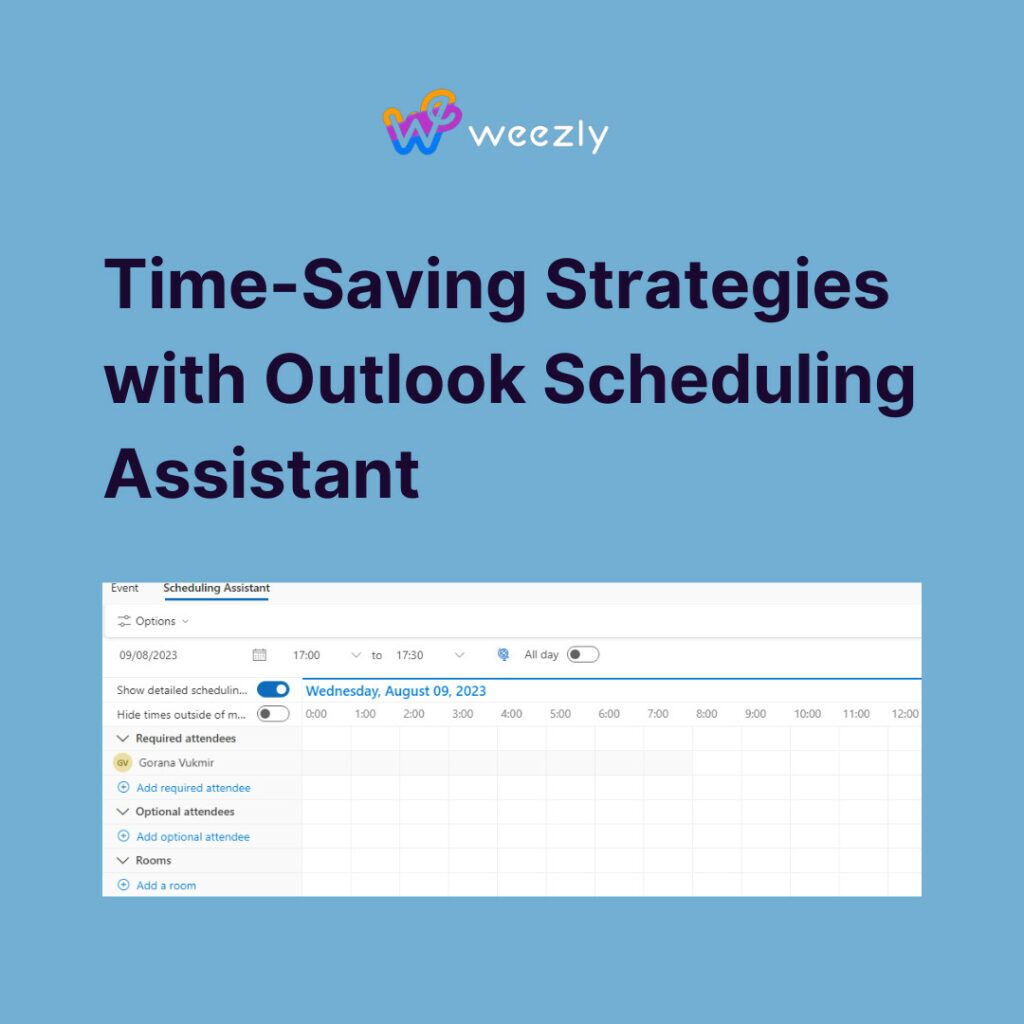Outlook scheduling assistant has become an increasingly indispensable tool for organizing and managing meetings effectively in today’s digital world. But how can we leverage this feature to create robust time-saving strategies unlike any other?
This is the question that often leaves users puzzled, seeking answers on platforms like Google and Bing. In this blog post, we dive deep into the intricacies of using Outlook, find useful tips, and best practices, and perhaps even discover which scheduling tools might work better for you.
Introduction to Outlook Scheduling Assistant
Outlook Scheduling Assistant is part of the Microsoft Office Suite and aims to simplify the way individuals and organizations manage their calendars. It allows users to see free/busy times across co-workers and collaborates to find suitable meeting times.
Outlook Scheduling Assistant: Key Features & Benefits
- Schedule Meetings with Ease: Automatically find the best time to meet by considering attendees’ schedules.
- Integration with Other Tools: Seamlessly integrate with other Office apps like OneNote and Skype.
- Automatic Time Zone Adjustment: Handles different time zones, making international collaboration simpler.
- Customizable Reminder Settings: Tailor notifications to individual preferences.
- Smart Scheduling Algorithm: Learns from your habits to suggest meeting times.
- Mobile Accessibility: Schedule on the go with Outlook apps for Android and iOS.
How to Use It?
- Open the Calendar in Outlook
- Click “New Meeting”
- Add Attendees
- Use the “Scheduling Assistant” tab to see free/busy times
- Set Date, Time, and Other Preferences
- Send the Invitation
Getting the Most Out Of Your Meetings
Microsoft Outlook simplifies planning meetings; however, it could present challenges if not used correctly. Here’s how to overcome common problems:
- Facilitate Agenda Creation: Seasoned professionals always prepare an agenda prior to any meeting. The good news is – Outlook lets you share links to documents containing this data via invitations itself.
- Avoid Double Booking: Leverage the ‘Scheduling Assistant’ feature to view attendees’ availability at a glance. Compare personal schedules while deciding upon a suitable meeting time ensuring no double booking occurs.
Let’s compare this utility against popular appointment software available today before we conclude.
Comparing Outlook Scheduler with Other Tools
Each calendar management application brings unique benefits to the table; here’s how Outlook fares against major players:
- Calendly Vs. Outlook: While both integrate smoothly with multiple calendaring systems, automated email notifications about schedule changes give Calendly an edge.
- Setmore Vs. Outlook: A distinct advantage Setmore holds over Outlook is its ability to accept online payments directly through the platform.
- Doodle Vs. Outlook: Although Outlook helps manage professional meetings efficiently, Doodle solves complex group scheduling dilemmas effortlessly.
In conclusion, adaptability determines whether Outlook suits your needs or requires you to explore other scheduling options, such as Weezly. Remember, effective time management is pivotal in optimizing overall productivity. Now, armed with the insights provided above, move forward confidently toward creating your personalized time-saving scheduling strategy!
Final Thoughts About Outlook Scheduling Assistant
Creating time-saving strategies with Outlook Scheduling Assistant is more than just convenience; it’s about enhancing your productivity and focusing on what truly matters in your professional life. From its easy-to-use interface to its robust feature set, Outlook Scheduling Assistant is a must-have for professionals and organizations aiming to streamline their scheduling processes.
